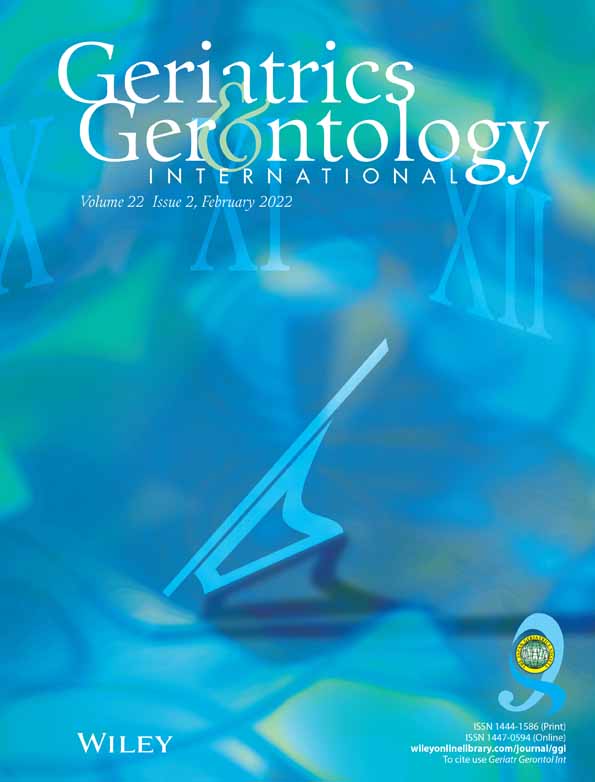Effectiveness of the Questionnaire for Medical Checkup of Old-Old (QMCOO) to diagnose frailty in community-dwelling older adults
Abstract
Aim
Although frailty could be reversible by early diagnosis and interventions, it lacks definite diagnostic criteria. The Kihon Checklist is a 25-item questionnaire that diagnoses frailty with a cutoff score of 7/8. The Questionnaire for Medical Checkup of Old-Old (QMCOO) was recently established and used for medical checkups among Japanese older adults, but no method or cutoff score for diagnosing frailty has been established. Thus, we aimed to diagnose frailty using the QMCOO and to determine its cutoff score by comparing it with that of the Kihon Checklist.
Methods
We recruited 223 older adults in Yasugi City and Yonago City to answer all the questions in the Kihon Checklist and the QMCOO at the same time. Those scoring ≥8 for the Kihon Checklist (n = 38) were diagnosed as frail. We also determined the cutoff score for frailty for the QMCOO and examined which questionnaire items affected the frailty status.
Results
The QMCOO and the Kihon Checklist score showed a significant positive correlation (r = 0.670, P < 0.001). The area under the curve was 0.851. A cutoff score of 3/4 for the QMCOO represented the best results (sensitivity, 76.3%; specificity, 88.1%; and accuracy, 86.1%). Multiple linear regression analysis revealed that subjective health status, body weight loss, slowness, and forgetfulness still affected the frailty status.
Conclusions
A cutoff score of 3/4 for the QMCOO might be effective in diagnosing frailty. Geriatr Gerontol Int 2022; 22: 127–131.
Open Research
Data Availability Statement
Data sharing not applicable no new data generated




